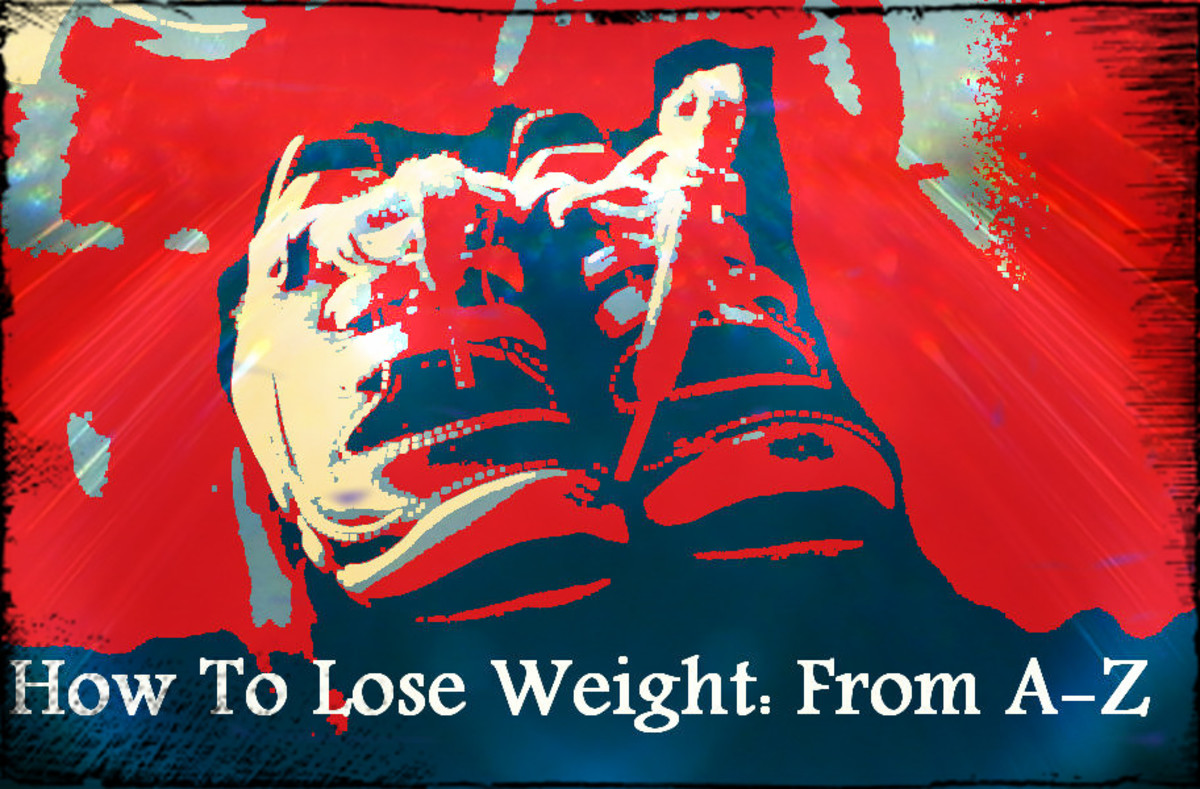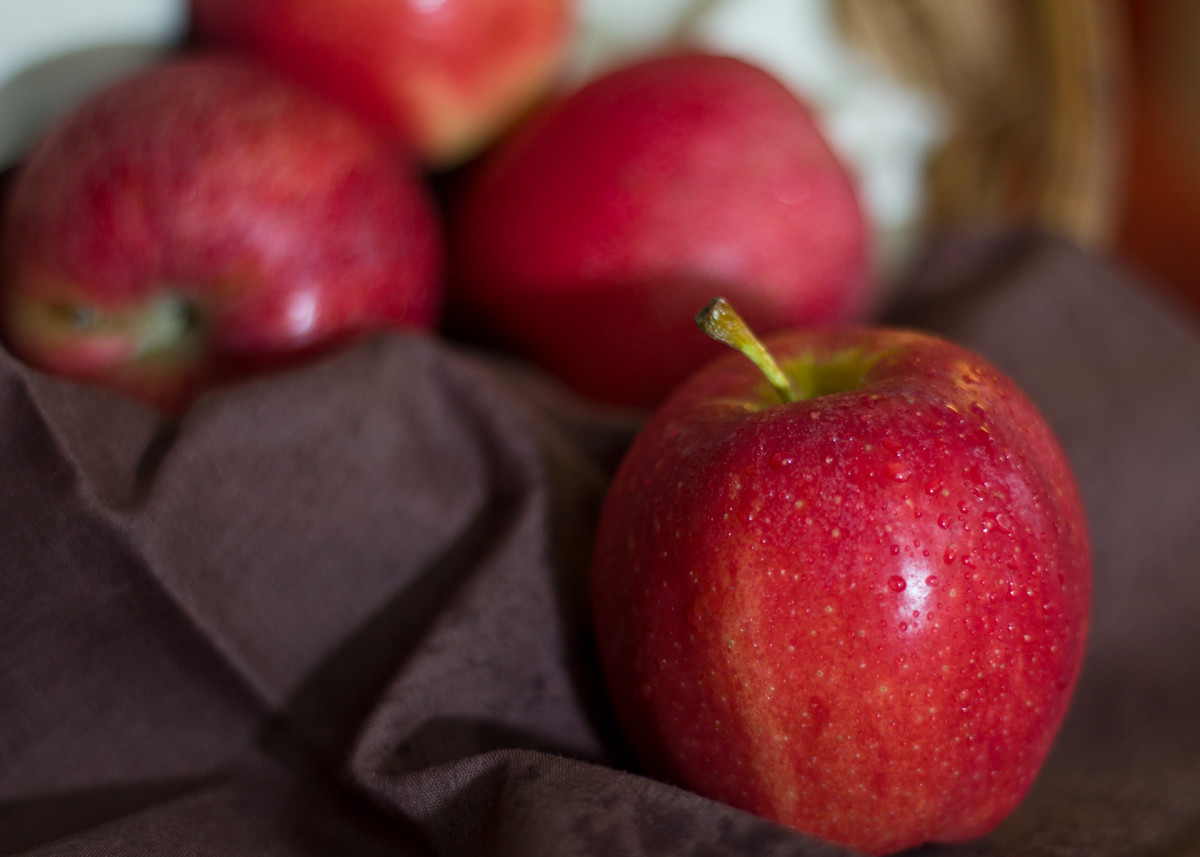People Fail to Lose Weight: 8 Biggest Mistakes Every Beginner Wants to Avoid

People fail to lose weight. So why do people continue to follow the numerous weight-loss plans which did not yield the expected results of helping them to slim down and attain their ideal body weight safely? Everybody knows if you want to lose weight, you will have to “eat less calories, and burn more calories”. There are many reasons why you could be struggling to lose weight despite your best efforts. I will reveal to you the 8 biggest mistakes every beginner will want to avoid in the future, based on my experience in successfully meeting my weight loss goals.
8 Biggest MISTAKES for Failure to Lose Weight
These are the 8 biggest mistakes every beginner will want to avoid in future, in taking actions to lose weight naturally.
“Success is not final, failure is not fatal: it is the courage to continue that counts.”
— Winston ChurchillMistake #1 - Being impatient and setting unrealistic weight loss targets
Most weight loss programs promise big results in a short time of a few weeks. Weight loss should be gradual and healthy. Setting unrealistically high weight loss targets within a short time, will demotivate and set you up for failure when you are not seeing the results. Setting smaller, manageable goals that produce progressive positive results will have a better outcome in the long run. Every pound you lose is a positive improvement step. Each person's weight naturally fluctuates daily, so monitoring success based on daily weigh-ins are discouraged because they add more pressure.
Mistake #2 - Not committing to a long-term lifelong plan
Quick weight loss programs and draconian weight loss diets do not normally work long-term. One might get quick results at first, but then most will get bored or struggle to sustain the difficult pace over the long term, leading to a rebound effect. Your goal is for realistic, natural, long-term, and long-lasting effective program that will last a lifetime, and not quick-fix temporary weight loss plan. Weight loss is a lifelong journey.
Mistake #3 - Eating and finishing your meals too fast
It takes about 20 minutes for your stomach to send a message to your brain that you have eaten enough. When you are eating too fast, your brain will not be able to catch up to register the food you have eaten, to tell you that you are feeling satisfied and no longer hungry. Slow your eating pace. Talk with fellow members at the table, in between chewing your food, and this can help you to cut down on calories and avoid over-eating.
Mistake #4 - Cutting Out Your Favourite High Calorie Foods Too Abruptly
Lighten the calorie content progressively for the foods and drinks you already love, by switching to lower-calorie alternatives. Reduce the food portions progressively until a reasonable level. If you try to lose too much at once by cutting out your favourite foods too abruptly, you will likely fail. Moderation, not deprivation, is a healthy goal. We do not have to go through life never having a piece of cake you like so much.
Obesity is one major cause of High Blood Sugar Level
Obesity and physical inactivity are the major causes of high blood sugar level. It is extremely important that you regularly monitor your blood sugar level, before it leads to serious health complications, like diabetes. CLICK HERE for a beginner’s guide for you to take charge of your blood sugar level management.
Mistake #5 - Not Tracking Your Food Calories Intake and Progress
To know how many calories you are really consuming, you need to keep track of your meals with a food diary, which can then highlight where, how and when you are consuming extra calories, and adjust your food consumption pattern accordingly and progressively. Simple carbohydrates from white flour, white rice and added sugar, when taken in large amounts, can raise your blood sugar level and lead to weight gain. Therefore, reduce these simple carbohydrates, and eat plenty of fiber-rich food. You need to monitor your blood sugar level regularly.

Mistake #6 - Over-eating after exercise
Do not over-estimate the amount of calories burned during your exercise or other physical activities, otherwise after each exercise you may over-eat, negating the purpose of exercise for shedding calories. Also, do not under-estimate the calories consumed.
Calorie Counter and Diet Tracker
MyFitnessPal is one of the fastest and easiest-to-use calorie counter and diet tracker app for Android. With the largest food database of any Android calorie counter, and amazingly fast food and exercise entry, this will help you take those extra pounds off! Featured in PC Magazine Editor's Choice Selection, Wired Magazine's Editor's Pick for Lifestyle AppsT, The NY Times, Wall Street Journal, USA Today, Family Circle, Marie Claire, NBC, CNET, Shape, the Today Show, and more.
Mistake #7 - Allowing yourself to get too hungry at any one time
Getting too hungry at any one time can lead you to eating anything and more, and you will regret later in terms of calorie intake. Avoid poor timing of meals. Eat several smaller meals during the day, so that you do not get too hungry at any one time. Divide your daily calories intake into several smaller mini-meals.
Mistake #8 - Not enjoying your exercise or activity, which leads to irregular physical exercise or activity
Everybody knows you have to do regular physical exercises or activities to burn more calories. But if you are not enjoying what you are doing, they are not likely to be sustainable, regular or long-lasting. Select exercises or physical activities you enjoy doing, and set your goal that you can and will be able to fit into your life. Whenever you have the opportunity, walk more, and use the stairs instead of taking the lift.
Are you Overweight or Obese?
Definition of Overweight and Obesity (by World Health Organization, WHO)
Abnormal or excessive fat accumulation that presents a risk to health.
To know whether you are overweight or obese, the "Body Mass Index" (BMI) is used. BMI is defined as a person's weight in kilograms divided by the square of his height in meters (kg/m2), that is, BMI (kg/m2) = Weight (kg) / [Height (m)]2.
For adults, aged 20 and over:
· BMI between 25 and 29.9 is overweight.
· BMI of 30 or higher is obese.
For example: Weight = 68 kg, Height = 165 cm (1.65 m)
BMI= 68 ÷ (1.65)2 = 24.98 (kg/m2)
BMI
| Weight Status
|
|---|---|
Below 18.5
| Underweight
|
18.5 – 24.9
| Normal
|
25.0 – 29.9
| Overweight
|
30.0 and above
| Obese
|
Listing of Top 10 Obese Countries
1. United States of America
2. China
3. India
4. Russia
5. Brazil
6. Mexico
7. Egypt
8. Germany
9. Pakistan
10. Indonesia
Obesity and Overweight Levels in Countries
Worldwide, the proportion of overweight adults (BMI of 25 or more) increased substantially between 1980 and 2013 from 29% to 37% in men, and from 30% to 38% in women, based on a study published in the Lancet medical journal. Current obesity rates range from below 5% in China, Japan and some African countries, to over 75% in urban Samoa. Only 4% of Japanese have a BMI of over 30, whereas 32% of Americans do. You can check the actual overweight level for your country from the OECD report update. More than half of the obese people in the world live in 10 countries, and America tops the list, as shown in the opposite box.
Do you know that Japan has one of the lowest rates of obesity in the world?
Why Does Japan Has One of Lowest Rates of Obesity in the World?
The main reasons Japan has one of the lowest rates of obesity in the world, and the United States one of the highest, are:
(a) The average person in Japan consumes over 200 fewer calories per day than the average American.
(b) Food prices are substantially higher in Japan, but the traditional Japanese dietary habits are also healthier.
(c) The Japanese are physically more active than Americans, not because they exercise more, but they walk more as part of their daily lives. They walk more because it is far more expensive to drive a car in Japan, whereas public transportation is typically very convenient, but normally requires more walking than the use of a car.
Anti-Aging Benefits of Ideal Weight
One of the easy, simple and natural anti-aging tips to look and stay young is to maintain an ideal weight and don't overeat. CLICK HERE to learn more on these tips.
What are the Health Risks of Obesity and Overweight
Obesity and overweight have become major global health risk factors for:
(a) cardiovascular diseases (mainly heart disease, hypertension and stroke);
(b) diabetes;
(c) musculoskeletal disorders (especially osteoarthritis of the joints);
(d) cancers (endometrial or uterus, breast, and colon).
What Causes Obesity and Overweight?
Obesity and overweight are caused by an energy imbalance where calorie intake is more than calorie expended, due mainly to:
(a) increased consumption of energy-dense, nutrient-poor foods with high levels of saturated fats and sugars; and
(b) reduced physical activity due mainly to the increasingly sedentary nature of work, improved transportation modes, and increasing urbanization.
Oatmeal is one of the best diet for Weight Control
Oatmeal has a large amount of soluble fiber which are digested by the body more slowly, thus making you feel full longer and less likely to overeat again. CLICK HERE to learn more.

What are the Basic Principles for Reducing Obesity and Overweight?
The basic principles for reducing overweight and obesity are:
(a) reduce fatty and sugary foods;
(b) increase consumption of fruits, vegetables and fiber-rich foods, such as oats, legumes, whole grains and nuts;
(c) regular physical activity.
Community Initiatives to Reduce Obesity and Overweight
This video explains the many contributing factors to the obesity epidemic, and showcases several community initiatives taking place to reduce obesity and overweight. We need to change our communities into places that strongly support healthy eating and active living.
Recommended Reference Books
These are recommended reference books for weight loss, but keep in mind to avoid the mistakes people make as explained above.
© 2014 mySuccess8








